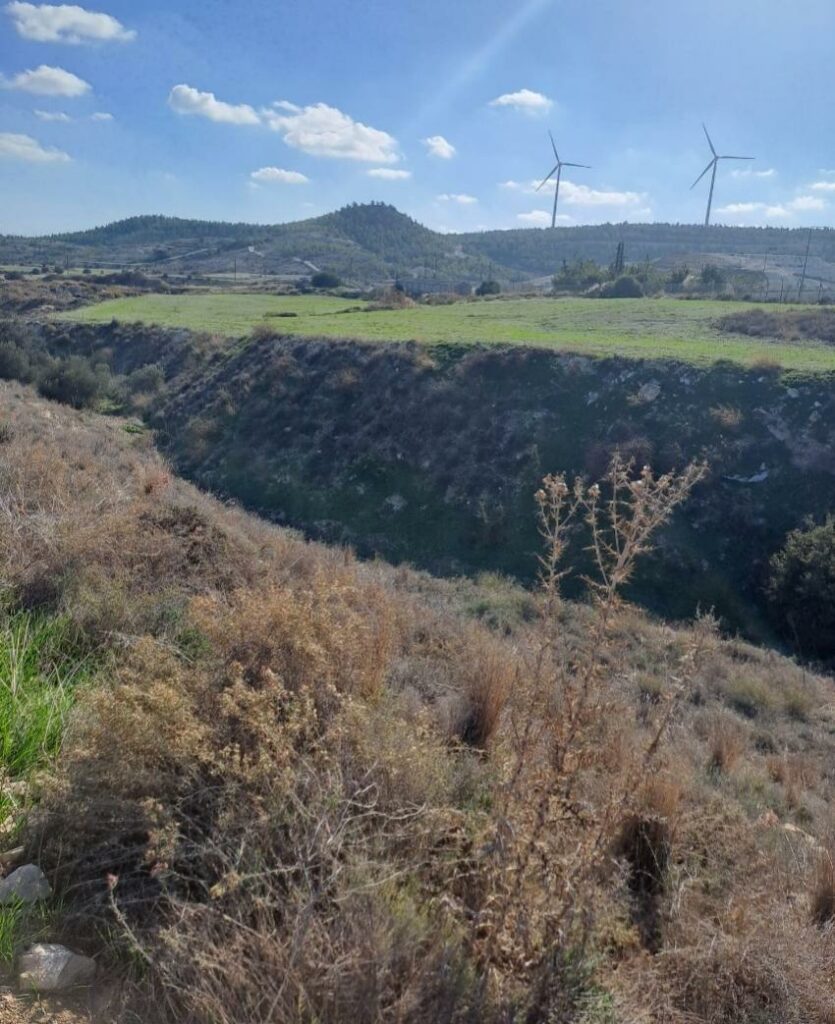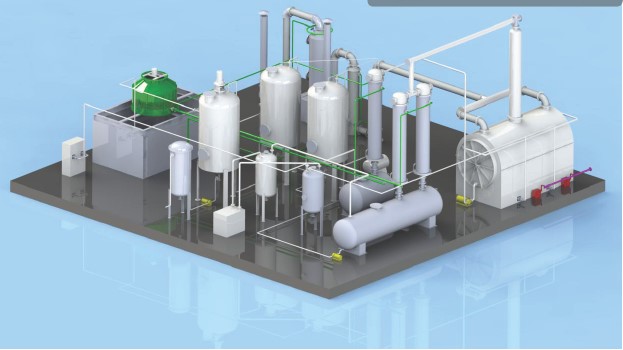Filenews 30 October 2025
A new chapter in plastic waste management opens with the licensing of the plastic pyrolysis plant of ALPHAKAT Holdings International Ltd, which will be installed next to the Integrated Waste Management Facility (OEDA) of Larnaca – Famagusta, in the area of Koshi. The Environmental Authority gave the "green light" for the construction and operation of the unit, imposing, however, a series of strict environmental conditions and restrictions. The ball is now in the hands of the EOA Larnaca for the planning permit.
The project, which aims to produce marine oil and naphtha from plastic waste, has sparked backlash from the Municipality of Aradippou and local residents, who express concerns about its environmental and health impact.
In his statements to "F", the owner of ALPHAKAT, Marios Ionidis, responds to the criticisms, underlining that the pyrolysis technology that will be applied is completely safe and is already being used successfully in European countries. "The unit is not intended for burning tyres, as has been erroneously reported by the mayor of Aradippou initially. It is exclusively about the treatment of plastic waste, except PVC, with the aim of producing a clean fuel product", said Mr. Ionidis.

According to him, the facility will be able to process 50 tons of plastics per day, producing 22 tons of net product, with continuous environmental monitoring by the competent state services during the construction and operation phase of the project. "The provisions of Cypriot and European legislation will be strictly observed. Emissions will be systematically monitored, while tanks and treatment systems will meet all international safety standards," he added.
The case has sparked strong reactions in the Municipality of Aradippou, with the mayor stating that he is strongly opposed to the installation.
The company calls these claims "unfounded and misleading", recalling that the area has been designated as a heavy industrial zone by the previous city council (2019–2024), when the current mayor was deputy mayor. However, the new municipal council is in consultations with the Larnaca EDA, with the aim of restoring the area to an agricultural zone, which further complicates the issue.
Despite the "green light" of the Environmental Authority, ALPHAKAT expresses disappointment about the delays in the issuance of the planning permit and the lack of response from some Services. As he notes, "all this is happening while the company has submitted to the EDA Larnaca all the necessary documents for the licensing". Mr. Ionides warns that these delays could expose Cyprus to European fines due to inadequate management of plastic waste, a problem that, as he said, "ultimately burdens the Cypriot citizen".

The opinion of the Environmental Authority is accompanied by a multitude of binding conditions, including:
>> Only PE, PET and PP plastics are allowed to be processed, with an explicit ban on other materials.
>> Compulsory Industrial Emissions Permit before the start of operation.
>> Installation of a gas emission anti-pollution system and frequent control of its performance.
>> Double-walled tanks, retention basins and leak detection system.
>> Fire detection, fire extinguishing and explosion proof.
>> Measures to reduce noise and light pollution, as well as perimeter tree planting.
>> Special closed storage and processing areas for "black carbon" with dust sensors.
The Authority reserves the right to impose new environmental conditions without compensation to the company, if it deems it necessary.
Respect for "the environment and society"
ALPHAKAT emphasizes that it remains fully committed to transparency, legality and environmental protection, with the aim, as it states, of "creating an innovative and sustainable infrastructure that will contribute to the reduction of pollutants and the promotion of the circular economy. Cyprus cannot be left behind in the technology of the green transition. We want to show that waste management can be done responsibly, with respect for the environment and society", concludes Mr. Ionidis.
The pyrolysis plant in Koshi is the first large-scale facility of its kind in Cyprus. Its success or failure, as noted by environmental circles, will depend on how strictly the environmental conditions will be observed and on transparency in controls throughout its operation. For his part, Mr. Ionides underlines the company's commitment to full compliance with the environmental and other conditions that the Larnaca EOA may impose.
